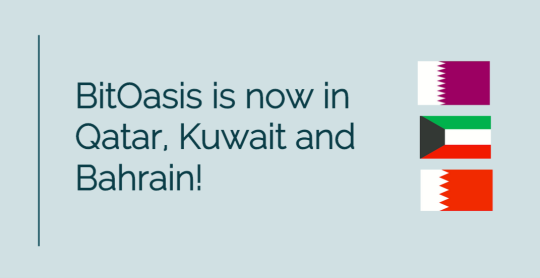The Middle East presents itself as an attractive market for most of the industries. Most of the conventional industries in the Middle East is driven by the presence of riches and petroleum in the region. However, Bitcoin is one such industry that has something to offer to every single person in the region. BitOasis, a Middle Eastern bitcoin exchange and wallet service is one such start-up active in the region.
BitOasis, founded by Ola Doudin and Tom James Holub was launched earlier this year in TechCrunch Disrupt NY. The company has recently announced its expansion plans in the Middle Eastern market. According to the post, BitOasis has expanded its exchange services and merchant API integrations to Qatar, Kuwait and Bahrain. With this move the company intends to introduce more people in the region to bitcoin and capture the market. These three countries are just the ones on the top of BitOasis’ expansion list as it intends to extend its services to more countries in the Middle East and North African region soon.
READ MORE: BitOasis Launches at TechCrunch Disrupt NY
With Bitcoin APIs made available in these regions, businesses located in these three countries will be able to accept bitcoins. By enabling bitcoin acceptance among e-tailers and merchants, BitOasis will be able to solve the problem of electronic payments through conventional routes in the region. Electronic payments are not widely adopted in Middle East as these services do not come cheap in the region. MENA region is home for a significant unbanked population who don’t have access to banking services. Also the expat population, which outweighs the natives in few regions will benefit from bitcoin services.
Middle East has a wide variety of people from different economic strata. While the sultans, flashy cars, amazing skylines and manmade wonders display the country’s riches, poor migrant labourers and blue collar workers from South Asia and Asia Pacific form the underbelly. The migrant population currently depends upon Western Union, MoneyGram or other money transfer services to regularly send money back home. Bitcoin based remittance services have a potentially huge market in this region waiting to be captured.
